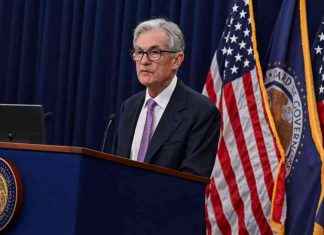TOKYO — Japan’s prime minister, a man who promised voters he would turn Japan back into a "beautiful country," is now doing his utmost to Make America Great Again.
8 Months Ago
7 Months Ago
2 Weeks Ago
Shinzo Abe is set to arrive in Washington, D.C., on Friday for his first official summit with President Donald Trump, and he will arrive armed with proposals on how Japanese companies will create hundreds of thousands of jobs and invest hundreds of billions of dollars in the United States.
Abe is clearly trying to get on the businessman president’s good side, but he will try to do so while also "correcting" Trump’s "misunderstandings" about Japan’s trading practices. Trump has said that Japan and China engage in practices that are "not fair" to U.S. companies, particularly U.S. automakers.
RELATED COVERAGE: Trump headed back to Florida to golf with Japanese Prime Minister Abe
"I will object where I should object," Abe said in the parliament last week, when asked about Trump’s remarks. "I’d like to clearly explain that it’s not that one side is benefiting but that both sides are benefiting. It’s a win-win situation."
Abe has wasted no time in currying favor with Trump, becoming the first foreign leader to meet with him after his election when Abe visited Trump Tower in Manhattan the week after Trump’s victory. He had been trying to see Trump within a week of his inauguration, too, but British Prime Minister Theresa May beat him to hold the first summit.
"Abe seems to be playing this as smart as he can," said Brad Glosserman, a Japan expert at the Center for Strategic and International Studies’ Pacific Forum in Hawaii. "It’s important for him to build a rapport with Trump – Trump likes strong nationalist leaders, and Abe is a strong nationalist leader – and personalize the institutionalized relationship."
Japan is nervous about its post-World War II security alliance with the United States – Trump had called it into question – but also about economic relations. The United States and Japan, the world’s largest and third-largest economies, were the two linchpins of the Trans-Pacific Partnership trade deal, which Trump scrapped immediately upon taking office.
Abe will take a plan called the "Japan-U.S. growth and employment initiative" with him to Washington, laying out five fields for economic cooperation, including infrastructure; robots and artificial intelligence; and working together in areas such as the Internet and space.
With a proposed $450 billion in infrastructure investments in the United States, Japan would generate 700,000 jobs, the paper claims, according to reports in the Japanese media. The prime minister’s office declined to confirm them.
But it is not clear how many of the jobs Abe will offer will actually be new jobs.
The infrastructure component would include high-speed rail projects in the Northeast, as well as in Texas and California. Japan would also help replace as many as 3,000 train and subway cars in the United States, the document said.
But Japan is already trying to sell Maryland a superfast "maglev" train between Baltimore and Washington and is involved in bullet train projects in Texas and California.
The document said Japan would "further cooperate" in highly efficient gas-fired power generation and the latest compact nuclear-power generation systems, according to the Yomiuri Shimbun, a conservative newspaper with close ties to the prime minister.
Abe met with Akio Toyoda, the chief executive of Toyota Motor, last week to prepare for the summit, according to local reports.
After Trump took to Twitter to criticize Toyota’s plan to build a plant in Mexico to manufacture Corollas for the U.S. market, Toyota re-announced plans to invest $600 million and add 400 jobs to its plant in Indiana, the home state of Vice President Pence.
Separately, Japan’s Government Pension Investment Fund (GPIF), the world’s largest with $1.2 trillion in assets, is preparing to invest $150 billion in the United States. It will buy debt issued by U.S. companies, the Nikkei business newspaper reported.
The GPIF had long concentrated its investments in Japanese government bonds but, under Abe’s orders, has been buying up Japanese stocks over the past three years.
Norihiro Takahashi, president of the fund, denied that the latest plan had been orchestrated by Abe’s government, saying investments were made according to the returns they could earn.
Polls have shown that most Japanese expect relations with the United States to worsen under Trump. One, conducted by the Mainichi Shimbun newspaper the day after the inauguration, found that 56 percent thought it would worsen, while 29 percent thought it would remain the same.
Remarks like those Trump made to pharmaceutical executives last week are fueling concerns about relations with the United States under its new president.
"You look at what China’s doing, you look at what Japan has done over the years," Trump told the meeting. "They play the money market, they play the devaluation market, and we sit there like a bunch of dummies."
Financial and governmental authorities in Japan immediately responded that their efforts have been aimed at pulling Japan out of two decades of deflation, not artificially devaluing the yen.
Meet the youngsters helping solve Japan’s caregiving crisis. Like Kunio Odaira, 72.
Japan’s trains are in a league of their own. Japan’s subculture of train fanatics is no different.
Our editors found this article on this site using Google and regenerated it for our readers.





